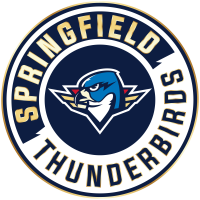
Modry Back on American Soil for Second Coaching Role in AHL
Jaroslav Modry joined the Thunderbirds coaching staff this summer alongside head coach Steve Konowalchuk and fellow assistant Chad Wiseman. The Czech-born defenseman played in 725 NHL games and won a Calder Cup in 1995 with the Albany River Rats.
Now back in the AHL as an assistant coach for the second time, Modry sat down with the Voice of the T-Birds Ryan Smith earlier this summer at St. Louis Blues development camp.
Some questions & answers have been edited for clarity.
RS: You inevitably lined up against (Steve Konowalchuk) in your NHL career. What are your recollections of him as a player, and do some of those qualities translate into making him a successful coach?
JM: I’d describe him as a tenacious, hard-working forward who was hard to play against. I believe all his strengths from playing transferred to coaching. He’s going to demand that the boys be ready and compete and be hard to play against. I think that’s going to be our DNA.
RS: What drew you to returning to North America to take on this opportunity to work with Steve, and when did it become clear that this would be a good fit for you?
JM: I feel like the North American game suits my eye and feel for the game the best. The NHL is the best league in the world, and the hockey family out here is so tight. It’s unique to be part of it. I had a chance to play and now being in coaching again, it’s an honor to have a chance to be part of an NHL affiliate. I’m super excited.
RS: You didn’t play in the AHL for long, but you did hoist a Calder Cup in Albany in 1995. Understanding the league is a lot different now, what kinds of lessons did you learn being part of that championship team, and how do you try to use that experience to impart those lessons to today’s players?
JM: We just became a team. We were really close & really tight as a group of young kids getting started in pro hockey. We clicked as a team and had a great coach and leader in Robbie Ftorek, who is a fantastic human being. I learned a lot from him. He gave us a chance to be who we are, and we became a tight group. We were really good friends, and I still keep in touch even now. You accomplish something as a team and you remember that for the rest of your life. You care for one another, go the extra mile for your teammates, and do the things to allow your team success. You have to build that from within as a coaching staff and guide them the right way. You have to show them the ropes and let them have their ownership of the team, too. When you do that, it’s so much easier.
RS: Going back to you saying the North American game suits your eye, the European rinks were wider when you played. Besides the rink dimensions, what drew you to the North American game more so than the European one?
JM: I like the fact that the smaller ice surface adds action and quickness. In a short time, you can make quick plays, and there’s a physicality to the game. I really enjoyed it, and I felt like it suited my game. Everything happens quick, and the game is really entertaining.
RS: You’re the first member of a T-Birds coaching staff to be of European descent, coming to an organization with a heavy European presence in its prospect pool. When you’re a 21-year-old kid coming over from another continent, I don’t know if it’s emphasized enough how big of a culture shock and life change that is on top of trying to crack an NHL roster. What can you take from your experience coming over from Europe, and how can you serve as a bridge for those European players?
JM: I can 100% relate to them, having been through it. I can help them transition to adjusting to a different culture and embracing it. There are so many great things you can do to make it home out here for yourself and still keep advancing with the game. The biggest thing, though, is the need to become a team. The quicker you learn the language, the culture, and even the jokes, the more you’re going to be respected by your teammates and you’re going to enjoy it so much more. You need to figure out how to blend in with the boys and be part of the culture. I’m here to help them out with that transition if they need anything. I went through it and understand what it takes and how to adjust and enjoy it. Hopefully, someday they can make it to the big club and be contributors and a big part of our organization.




